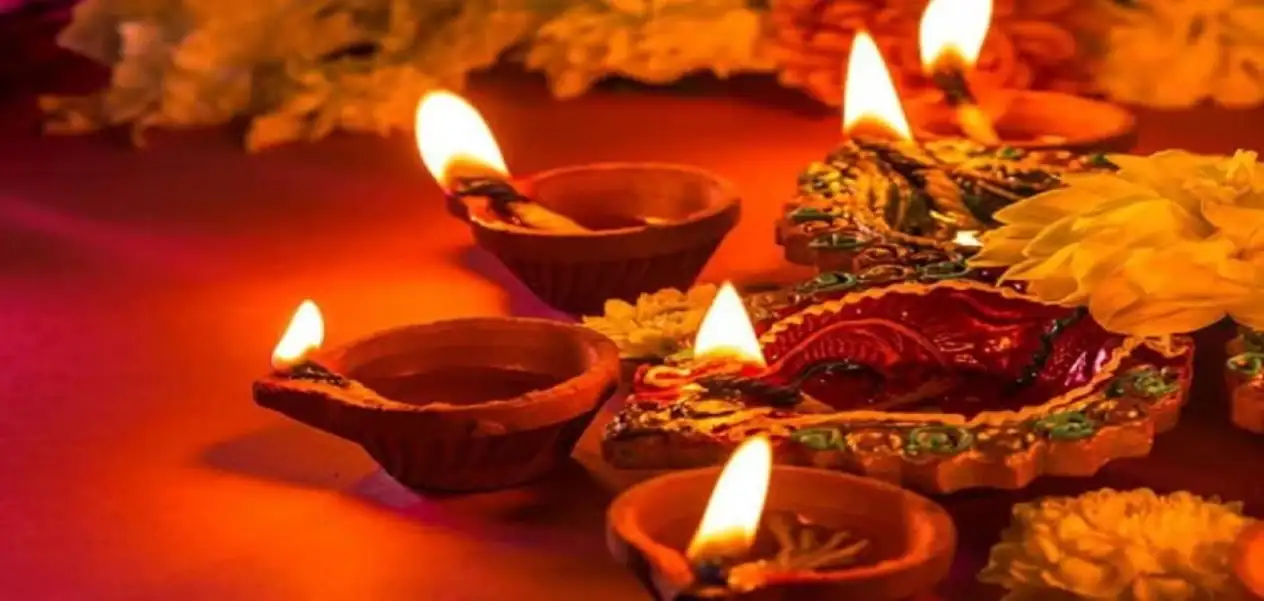
Sayyed Taleef Haider
Festivals are the largest element of the Indian culture incorporated in Urdu poetry. Poets have embellished their writings with festivals like Holi, Diwali, Basant, Baisakhi, Bhaiya Dooj, Rakhi, etc. However, Diwali holds a unique significance in the pantheon of religious festivals which are celebrated in the tradition of poetry.
Nazir Akbarabadi explicitly uses Indian festivals as the subject of the poem, but other Muslim and non-Muslim Urdu writers have written on Diwali. Muslim poets include Nazir Banarsi, Haider Bayabani, Jameel Mazhari, Waseem Barelvi, Anas Moin, Mumtaz Gormani, Obaidullah Aleem, Manzar Bhopali, Jamiluddin Aali, and Makhdoom Mohiuddin. They all have declared the vibrant Diwali festival to be their legacy. Their writings are proof that Diwali is a celebration for all Indians no matter what their religion or caste is.
Nazir Banarsi writes in his poem Deepavali:
Ghutt Gaya Andheray ka Aaj Dam Akailey Mein
Har Nazar Tehelti hai Roshni ke Melay Mein
Aaj Dhondhne Par Bhi Mil Saki NaTareqi
Maoutkho Gayi Shayad Zindagi ke Railay Mein
(I am alone in the dark today, every eye wanders in the festival of light, even after searching today, I could not find darkness, Death lost perhaps in the crowd of life)
The poet seems to be narrating his values rather and not the ambiance of the festival. He removes all the irritants and differences that develop under the influence of a particular mindset. Nazir Banarasi presents himself as an Indian soaked in the colours of Diwali while all other colours fade away. Like a child, the poet is enjoying the lights that illuminate his home.
Haider Biabani writes that to him Diwali is an occasion of happiness, perhaps more than Eid:
Diwali ke Deep Jalen Hain, Yaar se Milna Yaar Chale Hain
Charon Janib Dhoom Dhadaka, Chhote Rocket aur Patakha
Ghar Mein Phuljhadiyan Bhi chhote, Man hi Man Mein Laddu Phoote
Deep Jale Hain Ghar Aangan Mein, Uijyara Ho Jaye Man Me
(Diwali lamps are lit, friends have gone to meet friends, there is a boom all around, fireworks are going on everywhere, we are all very happy, the heart is also illuminated with happiness due to the light coming from the lamps in the houses.)
By no means does this imply that festivals can be classified into distinct national streams? It only shows the poets’ inner happiness on a day when people from all over India unite submerge their identities and soak themselves in the spirit of the festival
Urdu poetry accentuates the spirit of Indianness and brings everyone closer. On occasions like Diwali, it promotes the oneness of Indian people. This festival illuminates the lamp of unity in our souls and drives out the darkness of hate in addition to providing lights for the children.
Waseem Barelvi says in his poet:
Diwali ki Raat Aayi Hai Tum Deep Jalaaye Baithi Ho
Masoom Umangon ko Apne Seenay se Lagaye Baithi Ho
(The night of Diwali has come, you are sitting with the lamp lit, you are holding innocent aspirations to your chest)
These goals are akin to what Nazir Akbarabadi describes in his poetry. Reading his poem Deewali one could see the image of India in the eighteenth and nineteenth centuries, when both Muslims and Hindus enthusiastically celebrated this festival together. The credit for introducing Diwali to Urdu poetry goes to Nazir Akbarabadi. He introduced it in a manner that taught poets and writers how to achieve success through inclusive writing.
ALSO READ: Music is not a sinful action as per Quran
The lights of Diwali are no longer restricted to poetry in Urdu literature; instead, they are being ignited in every genre of this literature in the same way that Nazir first did. It is becoming more widespread among authors globally, setting our writing apart from other creative masterpieces.
